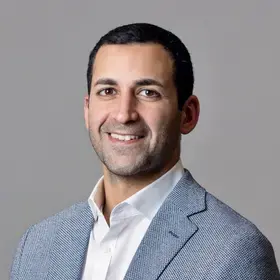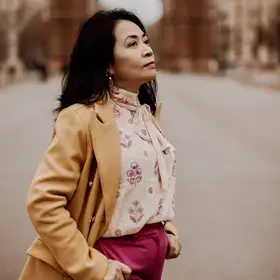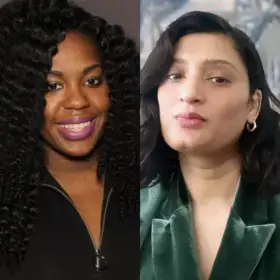Dhaval Khamar, ’18SPS, is a first-year medical student at Drexel University College of Medicine, but even though he graduated more than two years ago from the M.S. in Bioethics program at Columbia, he’s still deeply enmeshed in the community. He’s been a critical part of the launch of the Healthcare Proxy Helpline (launched by Bioethics Lecturer David Hoffman, J.D.), which helps New Yorkers designate a healthcare proxy through electronic witnessing. He’s also served as an Associate for two Bioethics courses.
What led you to apply for the M.S. in Bioethics program?
During my undergraduate years, I double-majored in Biology and Religious Studies. I researched religious perspectives on end-of-life care and found related discussions in the bioethics realm. I became really interested in the perspectives of these bioethicists and how they were able to dig even deeper than I could as part of their academic work.
More importantly, I saw that bioethics involved developing a practical application to questions that I previously saw as simply thought exercises. I was so fascinated by the ability to combine medicine, philosophy, religion, ethics and law into a practical outcome that I decided to apply for the M.S. in Bioethics program at Columbia, and I have been able to accomplish things since then that I didn’t even think were possible.
Tell us about your role in the Health Care Proxy Helpline.
In the spring of this year, the governor of New York authorized the use of audio-visual technology for completing, signing and witnessing signatures for the New York State Health Care Proxy form. This is a form that allows New York state residents to designate individuals who can speak on their behalf in health care situations where they are unable to speak for themselves.
Previously, they had to sign these forms in the presence of two witnesses who would also provide their signature as certification, but in order to ensure people could continue to fill out their proxy forms during the COVID-19 pandemic, electronic witnessing became an option.
In order to help New Yorkers fill out these important documents, we developed a service where any New York state resident could sign up to speak with two of our Health Care Proxy Advocates (most of whom are also Columbia Bioethics alumni), receive guidance on how to best document their wishes and have their form witnessed and signed by the two advocates. I believe that advanced care planning is very important, and being able to provide a novel method of accomplishing this was very rewarding, especially knowing that our efforts significantly increased the accessibility of advanced care planning.
Going through the master’s program not only strengthened my desire to pursue medicine, but it gave me a strong direction on what kind of medicine I want to practice. I say that not in the sense of pursuing a particular specialty, but rather the way in which I want to practice.
How has this master's program influenced your pursuit of medical school?
Going through the master’s program not only strengthened my desire to pursue medicine, but it gave me a strong direction on what kind of medicine I want to practice. I say that not in the sense of pursuing a particular specialty, but rather the way in which I want to practice.
This program really emphasizes developing critical thinking, which is so important to medicine, because even if I understand all the information I learn in an academic setting, being able to integrate it all into cohesive plans that address the needs of my future patients is critical.
I also want to use the communication skills I learned in the clinical ethics curriculum to improve the care I provide patients, since clear and open communication is such an important part of providing optimal and compassionate care. Going beyond caring for my own patients, I hope to also become a clinical ethics consultant to help other care providers, patients and families navigate complex ethical issues they’re facing.
Did you have a favorite course or teacher, and why?
I don’t think I can pick one particular teacher as my favorite since all of the faculty are so wonderful at engaging with students and willing to take time out of their day to review class topics, or even discuss current issues in bioethics. Even now, over two years after graduation, I’ve been able to stay in touch with most faculty, and I continue to receive messages of support, which is both humbling and inspiring.
Learn more about the M.S. in Bioethics program at Columbia University.


